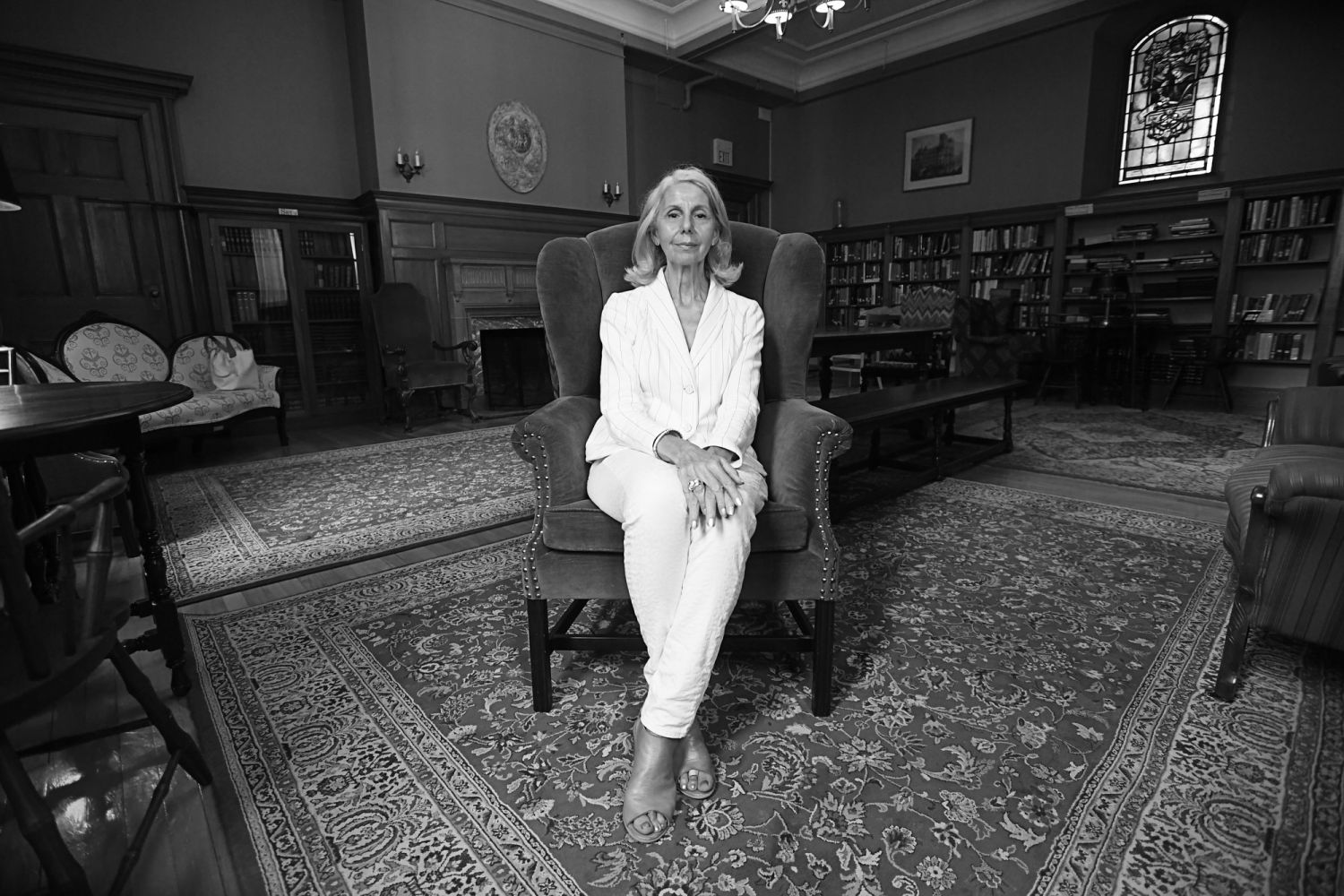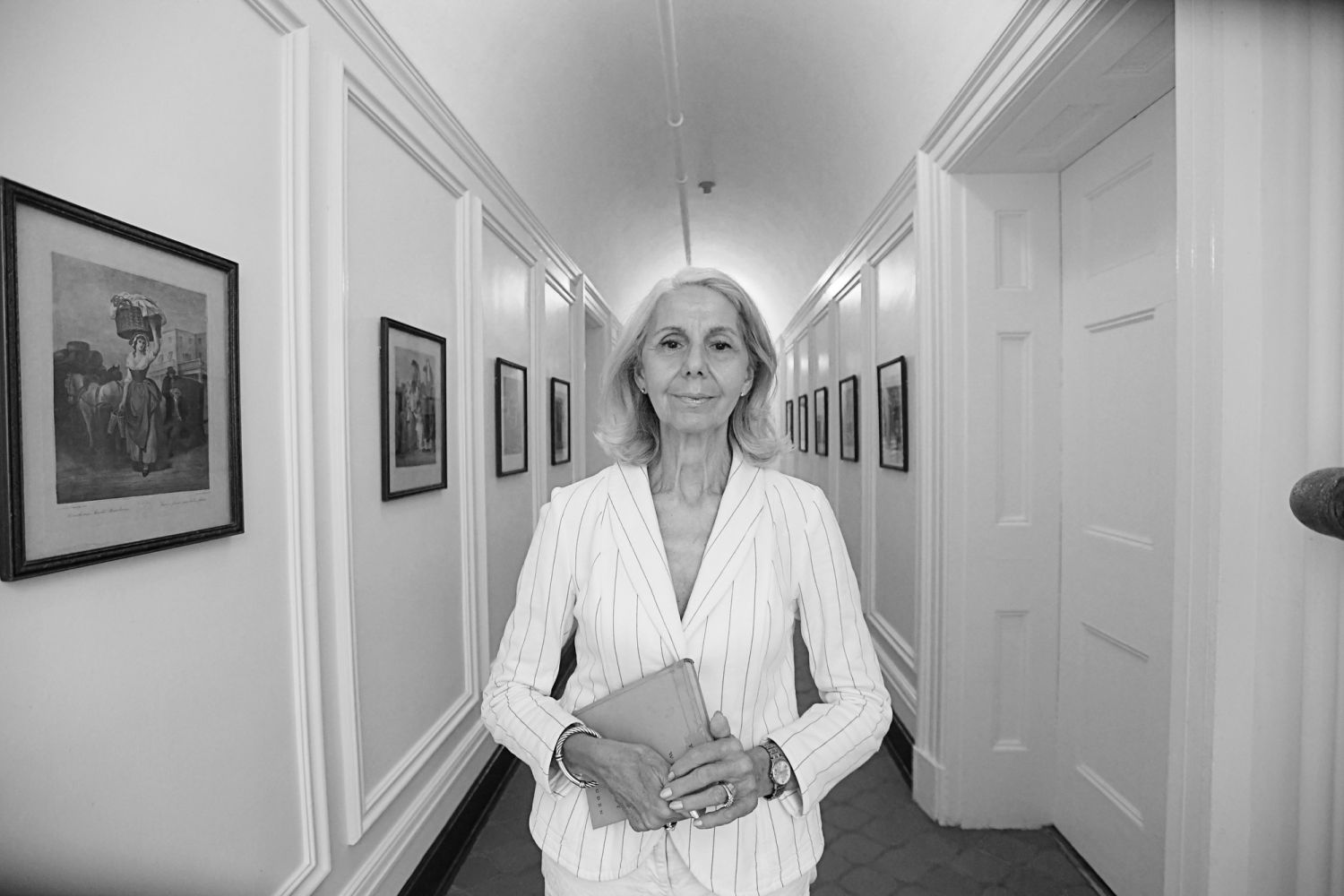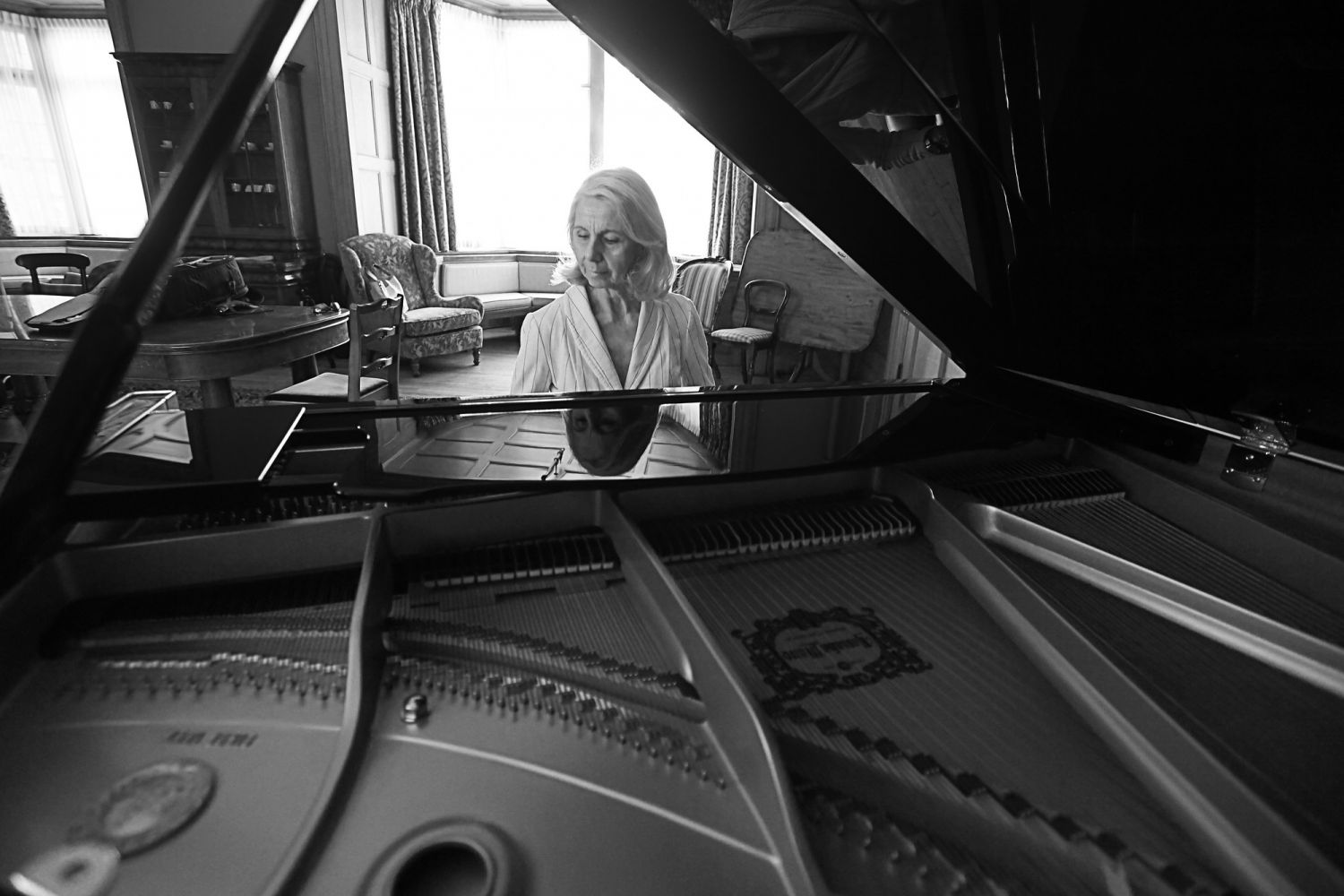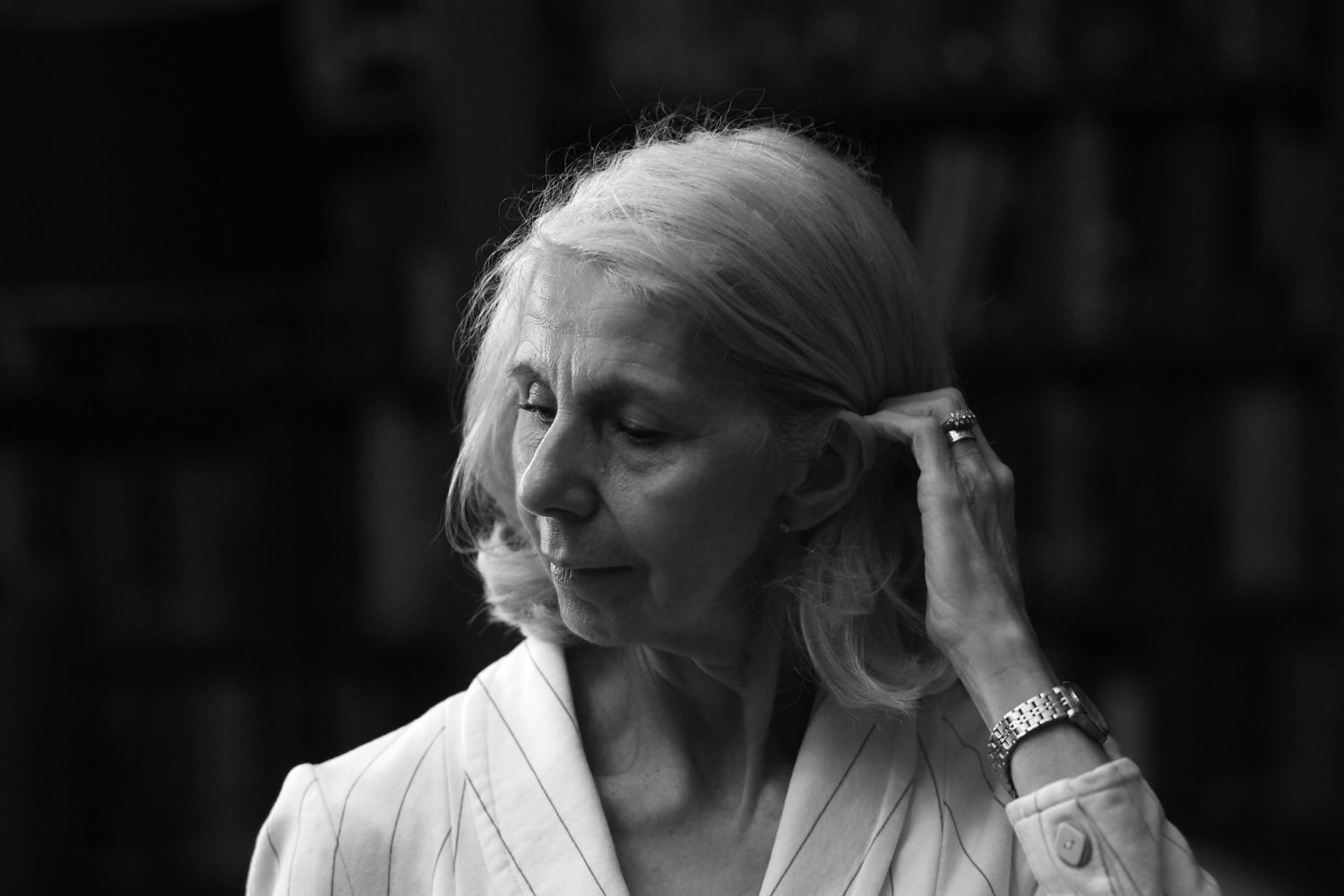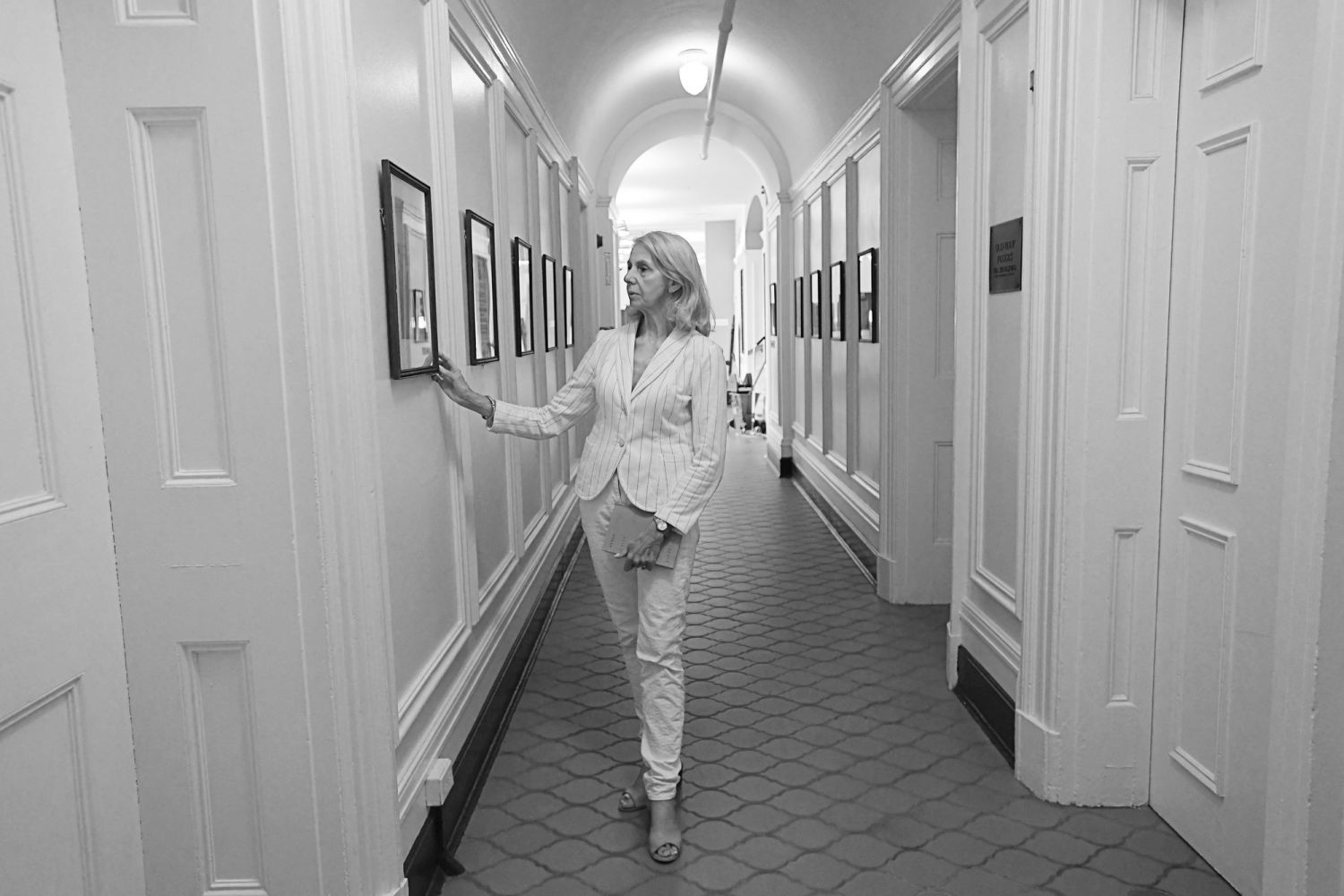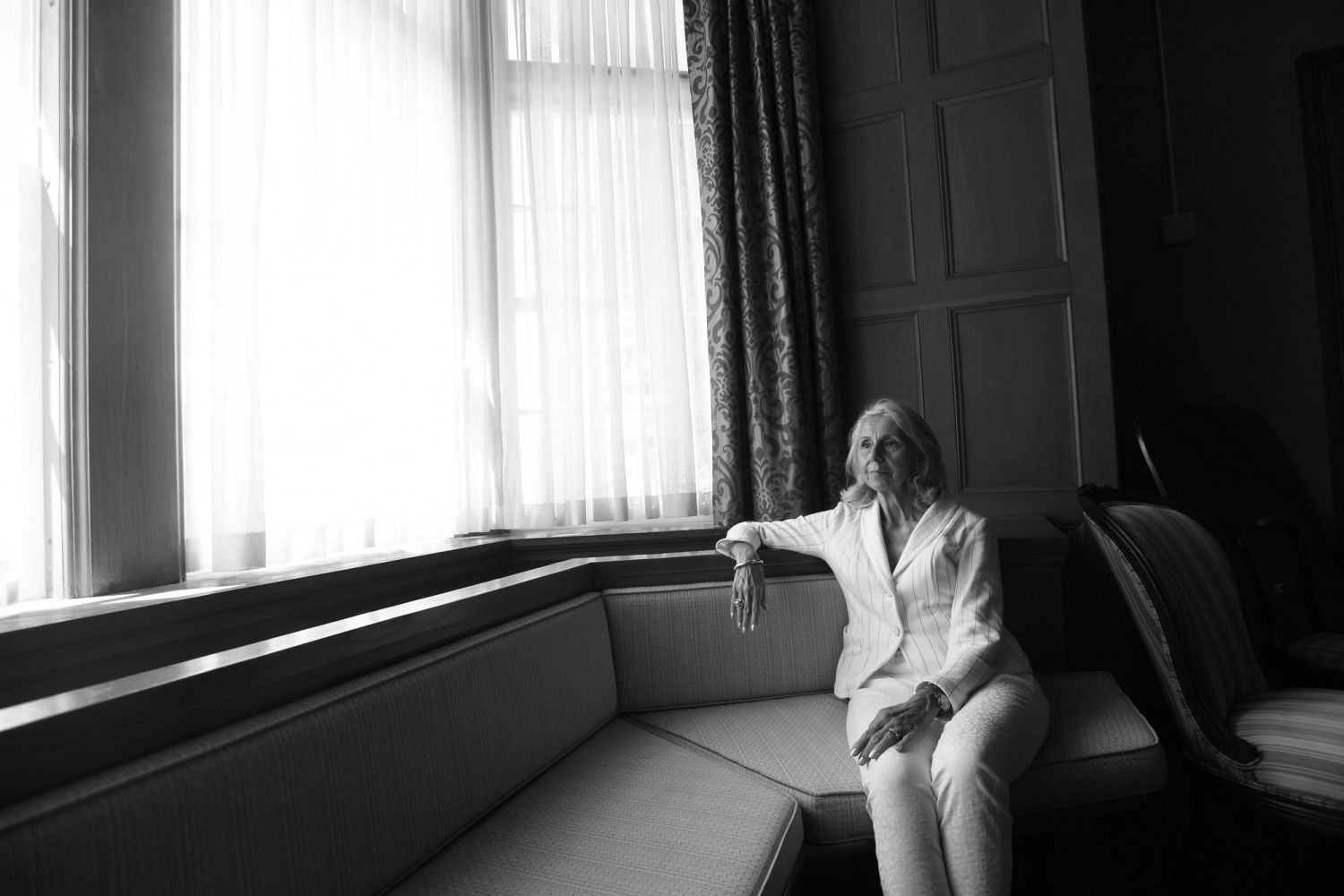I lived in New York when I was a teenager . Two summers. I loved it. Where we were living, then it was thought to be run down, but now it’s gentrified again, there was a real community there. The grocer knew 'oh there are those two girls from Nova Scotia' and he would watch us until we got down the street. That kind of thing. And then in London when we lived there in 1970, I found my own community. I think if you find your community, it doesn’t matter how big the town is.
I went to the Mount Academy, an all girls’ school. I took art from Sister Rosalie, and I was painting. I thought, ‘This will be nice. I’d really like to go to art school.’ Not so much painting, but textiles. I started to research schools and my mother put the kibosh on that and said ‘no, you have to get a B.A., or you’ll never support yourself.’ And I wasn’t rebellious enough to say, ‘Ok, I’m packing my backpack and leaving.’ I liked the good life at home. And then she said, 'You have to get a B.Ed. so you can get a job,' and then I did that.
My father treated me just like he would treat a boy. My sister and I were told we could just stand up and do what we wanted to do. Our opinions mattered. I’m not an activist. But I sure am a feminist.
The first woman student to register at Dalhousie was in 1881. And you know, at Cambridge, no woman graduated until 1946 or ‘48. They could take classes, but they couldn’t graduate. They couldn’t get a degree. I find that absolutely mind-blowing. That was after the war. After women did all those things in the war.
The Women’s Division has a wonderful connection with the Fountain School of Performing Arts. We have a Musicale, which is our main fundraiser for student bursaries and medals, and that’s in January. That has been going on for almost thirty years.
For two years, 2005 to 2007, I stayed home Tuesdays and baked because I invited the King’s Foundation Year kids in for tea. And to talk. Sometimes I had five. Sometimes I had 25. And there wasn’t one day that I wished they weren’t there. And then some of the other kids found out and said, ‘can I come?’ And sure, of course, no problem just come. Professors started to come. The president came over. It was fun. And it sounds old time, you know, having tea, but it was conversation and it was community. It was really fun. And then in those years, I knew all those kids on campus.
I met him in the Lord Nelson Bar when I was there with a girlfriend who was dating one of his friends. I thought he was terribly fresh, and I wouldn’t have anything to do with him, but he kept asking me out. And I kept saying no and my good friend, who’s my son’s Godmother, still my good friend, she said to me, ‘You should go out with him, you know, he has a very nice mother.’ And he did. And she was a friend of my father’s. This was Nova Scotia, they grew up on the same street in Lunenburg. Things just kind of fell in place, and maybe that was a good thing. Michael and I have been married for 49 years this year.
Volunteering, fundraising, organizing. It just became a part of my life. And even today if I have a free day, I think, ‘Do I have a free day?’ I’ve taken on board positions for small organizations, but I’ve never taken on appointments to anything really large that I had a huge commitment for, but I do applaud people who have done that. I sometimes think that what I did was worthwhile but maybe I should have been working. Maybe I should have managed an office. Maybe I should have done this or that. But I’ve enjoyed it, and I have been very blessed.
